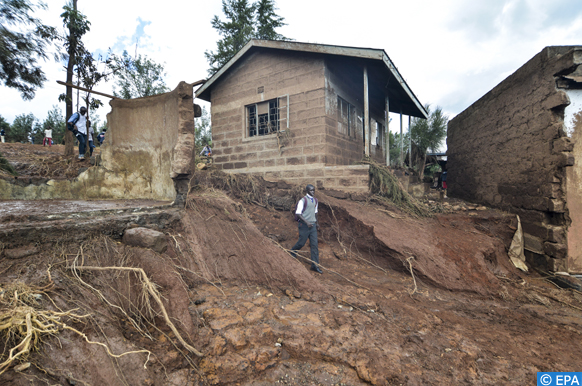© Associated Press
–
As the Taliban progresses rapidly across Afghanistan, designer Marzia Hafizi is concerned about the survival of her fashion business and the gains of women over the past 20 years. In 2018, Hafizi, 29, opened her Laura clothing store in the capital, Kabul, fulfilling her long-held dream of becoming a businesswoman in her conservative male-dominated homeland, an unthinkable feat during the Taliban rule from 1996 to 2001. .
“If the Taliban return to power and impose their old obscurantist way of thinking, I may be forced to leave,” Hafizi said, overcoming the noise of spinning machines as male and female tailors cut, sew and iron her latest patterns. “All my friends and relatives advise me to stop working and leave the country, (but) my determination to promote women’s business, create jobs for them and see how Afghanistan becomes independent keeps me here and makes me fight for survival. “
The Taliban imposed a strict interpretation of Islamic law, which included public flogging, stick fighting, and stoning until they were expelled from the U.S. bombing that followed the September 11, 2001, attacks in the United States.
As foreign forces, led by the United States, completed their withdrawal, the Taliban quickly conquered new territories, reinforcing women’s fears of disenfranchisement, from education and work outside the home to freedom of movement. Under Taliban rule, women were required to cover their bodies and faces with a burqa and were barred from going to school, working and leaving their homes without a male relative.
The rebels say they have changed and that Islam gives women rights in business, work, inheritance and education, but have revealed few details. They only say that this will be resolved in accordance with Islamic Sharia, which fuels the skepticism of many women.
The government has vowed not to compromise on women’s rights in exchange for peace, but talks between the Taliban and Afghan politicians have failed to make progress. Analysts at the US National Intelligence Council predicted losses for women even without a Taliban victory, attributing women’s recent gains to external pressure rather than domestic support.
Fawzia Kufi is one of the few women negotiators in peace talks between Afghan politicians – who have vowed not to jeopardize women’s rights – and the Taliban. “With the opposition that women in Afghanistan are exerting, we will not return to the starting position,” said Kufi, who survived two assassination attempts. “We will do our best to maintain the presence of women in society and in political and social life … we will not go back to the dark past.”
Kill me or let me work
Over the past two decades, women have made significant strides in the number of graduates and former male bastions, including in politics, media, justice, hospitality and information technology.
In cities such as Kabul, Herat and Mazar-e-Sharif, young women can be seen working freely, talking on smartphones, wearing Western clothing and interacting with men in cafes and malls.
President Ashraf Ghani has appointed women deputy governors in all provinces and given them ministerial roles. Thanks to a quota principle, 27 per cent of MPs in the lower house of parliament are women – more than the global average of 25 per cent, according to the Inter-Parliamentary Union (one of the oldest international political institutions).
Nearly 60,000 women have their own businesses, mainly in Kabul, including restaurants, beauty salons and craft shops, according to the Afghan Women’s Chamber of Commerce and Industry. Those who spoke to Thomson Reuters said they had gone too far to be stripped of their achievements.
“Whatever the circumstances, I will not give up my job,” said 28-year-old Nilofar Ayubi, who runs interior design firm Maria’s Quilts, popular with Kabul’s elite. “If the Taliban come to power, they will either have to kill me or let me keep working.”
In rural areas, where conservative families and radical Islamists command, most women still wear burqas and leave home only to go to the hospital or visit relatives, and little girls continue to be sold as brides to older men.
“There is still so much to be done to extend fundamental health and education rights to rural women, not only in Taliban-controlled areas, but in all remote towns and villages,” Nezam Udin said. head of the organization “Peace and Human Rights”. “People still lag far behind in terms of development, services, even compared to Kabul, not to mention the standards of the countries in the region.”
Masuma Jafari, 23, who sells jewelry and cosmetics in Kabul, said she was aware of the price women would have to pay if the rebels seized national power. “I am from Gore, where many women were stoned to death by the Taliban in the past. But look at me now, I am a symbol of opposition,” Jafari said, referring to a western province where the Taliban forced Afghan troops to withdraw last month. “We hope and pray to Allah that the obscurantist era of the Taliban will never return,” Jafari said as he adjusted the veil on his head.
–


